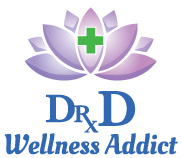“If you think you are being too cautious, you are being just cautious enough.”
-Dr. Anthony Fauci, Director of NIH: National Institute of Allergy and Infectious Diseases
COVID-19, aka the Coronavirus, is a global pandemic that has reached every state in the U.S. There is no need to panic – but there is a need to be informed and for each of us to act now to prevent a crisis like the one Italy is experiencing from occurring here in the United States.
This article provides important facts, recommendations, and references to help you stay informed, protected, and healthy. A complete public resource for facts and prevention tips by the World Health Organization (WHO) can be found here. I also like the American Thoracic Society’s (ATS) patient and public health information series, which cites the Center for Disease Control (CDC) in addition to the WHO.
Note that the facts below come from a course by the WHO, and are based on our current knowledge of COVID-19, which changes day by day.
A few COVID-19 facts:
- Roughly 20-25% of people infected with COVID-19 never show symptoms.
- About 80-85% of those with symptoms experience mild to moderate outcomes.
- Those at risk for more severe outcomes, including death, are the immunocompromised (weakened immune system), people with pre-existing conditions (ex: diabetes, hypertension, heart disease, autoimmune disorders), recent cancer, or those with a more susceptible immune system (young children, especially newborns, and the elderly). That being said, there have been some recent reports of young, healthy people experiencing severe illness.
- Regarding the elderly, it is clinical, not chronological age, that matters. Not all 80 year olds have weak immune systems. The risk of severe illness is less, regardless of age, if you’re healthy, active, and have a strong immune system. I am more concerned, regardless of age, if you, for example, have diabetes or chronic respiratory issues. This has been stressed by the U.S. Coronavirus Task Force’s medical experts.
- There is currently no vaccine or targeted treatment for COVID-19; however, there is a protein on the surface of the virus that is more than 99% similar to a protein on HIV, providing promise for currently approved and effective antiretroviral treatment. In addition, other currently approved medications are being fast-tracked since they possess promising activity against COVID-19.
The reason EVERYONE must take action:
- The peak has yet to occur, and could happen sometime in the next few weeks. All experts are predicting it will get worse before it gets better, and that it depends on what we ALL do NOW.
- The virus can shed for weeks, being unknowingly passed around by the 20-25% of infected people who show no symptoms, or the sick that do not quarantine for at least two weeks post symptoms.
- Droplets of bodily fluids containing the virus can stay in the air for at least 3 hours, on cardboard for up to 24, and on plastic for at least 3 days
- Cases have been reported in all 50 states. The overall numbers are significantly underreported due to a lack of testing.
- The United States Healthcare system does not have the resources to treat a virus this pervasive. People are dying because hospital beds and ventilators are unavailable. It is predicted that millions would be needed to effectively deal with the impact of COVID-19, compared to the thousands we actually have.
- Healthcare workers treating the sick are getting infected, and even dying, because there are not enough protective face masks.
What to do:
- The most important thing you can do is stay calm, informed, and follow ALL recommendations from the link I mentioned earlier, again found here. The most important are frequent hand washing for at least 20 seconds and social distancing.
- The U.S. Coronavirus Task Force urges everyone to practice social distancing, especially millennials and Gen Z. Experts say we can be the key to preventing a crisis, because we are the most likely to gather in crowds and carry the virus back to our families and communities. In addition, WE can get the message out via social media.
- Social distancing is described here in this concise WHO resource, and this 45 second video will surprise you – do you actually wash your hands correctly?!
- If possible, avoid over-the-counter ibuprofen (Advil) and other nonsteroidal anti-inflammatory agents if you are treating confirmed or suspected COVID-19. There is no definitive data to say ibuprofen increases your susceptibility to the virus or makes the infection worse; however, there is some concerning information that ibuprofen increases a specific protein used by the virus to attach to the lung.
Stay tuned for more information on ways to build your immune system naturally, keep busy at home alone or with family, and manage the stress of this crisis.
“I’m staying home, so someone else’s grandmother can stay alive.” -Dr. D
